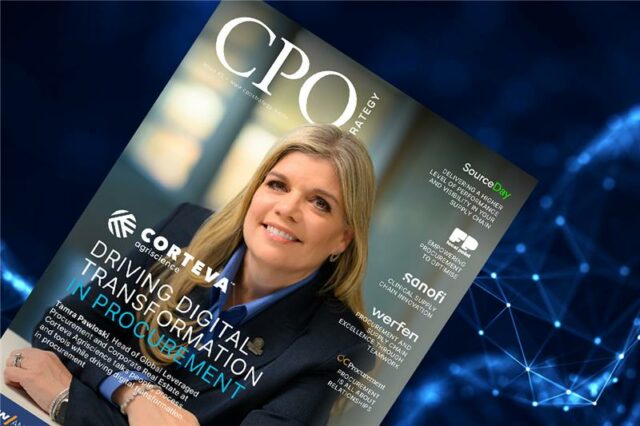by Mike Dickinson – SMMT Industry Forum General Manager, automotive and supply chain
Up until recently, supply chain managers have called the shots when it came to supplier relationships. Suppliers were dictated to when it came to products and the quantity required, with contracts won or lost on price alone.
It was also standard practice for problems with supply to result in suppliers being reprimanded – either fined or presented with less favourable terms or treatment. In turn, customers had prices dictated with little negotiation on other key areas such as service, MOQs and delivery time frames.
Nowadays, suppliers are part of the business, and that previous management style, especially in emerging sectors or new, innovative businesses, just isn’t conducive to a healthy supply chain.
In order to improve and maintain a good relationship with suppliers, supply chain managers need to move away from an outdated business culture of finding someone to blame, and towards a more modern, collaborative approach.
Top five tips for maintaining good relationships with suppliers
- Communication: Talk to suppliers regularly
- Teamwork: Plan for contingencies and accept accountability
- Understanding: Have a working knowledge of a supplier’s business and/ or operating procedures
- Stay flexible: Adapt to everyday issues as they arise and resolve them quickly
- Feedback: Encourage open discussions around how to work together more efficiently in the future
How millennials will manage suppliers
This ‘resolve and improve’ mentality looks likely to become standard practice, as according to Relate* by 2025 75% of the workforce will be millennials (those born between 1981- 1996). Due a shift in working behaviours, this generation looks likely to have a greater impact on supply chain relationships than their predecessors
A recent article in Forbes** stated that, “millennials will only interact with brands that are open and transparent, stand for more than their bottom line, and address environmental and socioeconomic issues in the community.” The desire to see suppliers as part of the team, rather than a customer and provider relationship, will better suit a changing supply chain culture.
The management styles of previous generations – such as Baby Boomers (1946 – 1964) and Gen- X (1965 – 1980) – tended to be more aloof, with a focus on the bottom line and an ability to confront problems head on. While there are benefits to that approach, it just won’t work for millennials who have a need for social responsibility, constant communication and teamwork.
Prices, scaled discounts, collaboration through planning, rebates, commitment to buy, returns acceptance for new range releases, VMI, consignment stock agreements – are already common for those who actively manage their relationships with suppliers.
Different sectors also differ in their changing approach to supply chain relationship management. Heavy industrial areas such as Automotive, Industrial Machining and Aerospace, are lagging with the new approach to supplier management, while the more public-facing industries – particularly sectors with a strong consumer reach where their customer base demands high quality, responsible, efficient supply – such as Technology, Fashion and Fast-Moving Consumer Goods, are pushing the boundaries of what was once standard practice.
Technology is lifting limitations
These forward-facing industries are also more likely to embrace new technology and be willing to apply it to their management strategies. Technology which can help to lift the previous limitations of supplier relationship management is already available. For example: Blockchain promises to allow visibility throughout the supply chain, making it easy to view key factors such as: current stock, production, shipping information, quality issues and pricing of raw material data.
Transitioning from a one-sided supplier management approach, to a joined-up partnership means that measuring a full range of services (price, lead time, quality, customer service, environmental sustainability, CSR) is essential if technological advancements are to be adopted.
In process crucial areas of business, such as supply chain, good relationships are key to delivering to targets, and no supplier will sign up to sharing data (honestly) if there is the fear of punishment as a result.
Relationships don’t break down overnight
Healthy working relationships are built on trust, mutual respect, mindfulness and communication, however, when we neglect one or more of these areas, the relationship suffers.
Usually there are a number of errors which result in the erosion of trust and respect over time. These errors usually fall into one of the following categories: Pre-contract mistakes, contract errors, termination issues and the breakdown of relationships.
Businesses who rely on an efficient supply chain to remain profitable know that the relationships with those within the chain are paramount. It is essential for these businesses to build and maintain high performing relationships with customers and suppliers. The inability to maintain an effective working relationship can have a huge impact on the entire supply chain, causing issues such as:
- Stock availability problems due to poor performance
- Obsolescence issues due to variability in supply
- Being stuck holding excess levels of stock to buffer the impact from suppliers
- Little to no support to manage changing demand patterns
- Increasing supplier costs with no negotiation
Training is available
Companies who feel they need support can turn to analysts such as SMMT Industry Forum, who helps global manufacturers understand, optimise and improve both manufacturing capability and business performance. SMMT Industry Forum was created by the UK government, the Society of Motor Manufacturers and Traders, and vehicle manufacturers in order to improve the competitiveness of the UK’s automotive supply chain.
Mike Dickinson has over 25 years’ experience in supply chain and manufacturing leadership roles, having worked for Nissan, General Motors and Qoros Automotive. He has managed global operations including greenfield build-ups and brownfield transitions, in Asia Pacific, Germany and Shanghai. He was trained in lean manufacturing techniques by Japanese Master engineers in the 1980s.
* https://relate.zendesk.com/articles/millennials-as-managers/











